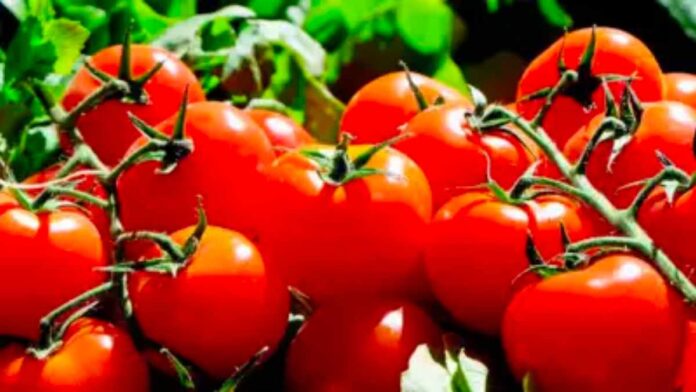Tomato prices in Mumbai have reached a record high, causing hardship for residents. The price of other vegetables, like French beans, green peas, green chillies, ginger, and coriander, have also been increased..
On Tuesday, Mumbai retail marketplaces sold tomatoes at a record high price of Rs 160 per kg. Other vegetables like, French beans, green peas, green chillies, ginger, and coriander cost between Rs 250–350 per kg. The price of a lemon was Rs 12–15.
Additionally, compared to the prior average of Rs 80–100, the majority of popular vegetables now cost no less than Rs 100–120/kg.
Blame the weather or the late arrivals; Mumbaikars are worried about rising vegetable prices.
On Tuesday, roadside stores in Borivli, Powai, Breach Candy, Pedder Road, Matunga, and Bandra West in Mumbai sold tomatoes for Rs 160 apiece. The stores in Andheri Lokhandwala, Nerul in Navi Mumbai, and Kalwa in Thane offered tomatoes for Rs 120 per kg. It also cost Rs 120 for the little, uncooked, or slightly yellow version. Because of “short arrivals and spoilage by rain,” traders predict that tomato prices would rise to Rs 200 per kg on Wednesday and Thursday.
Vendors had previously ceased included coriander with daily purchases; currently, chilies are also no longer included, costing up to Rs 300 per kilogram as opposed to the customary Rs 100. The price of coriander has increased from the customary Rs 20–40 per bunch to Rs 60–100.
Coriander costs more than Rs 350 per kilogram, according to a Thane resident. Kothimbir wadi is frequently in high demand at my neighborhood “poli bhaji” business. But it is no longer an option.
Sunil Chavan, the state’s agricultural commissioner, stated that since tomatoes were selling for such low prices in March and April, growers were obliged to abandon their fruit on the streets. Even the expenditures were not covered. Following that, we saw erratic rain and hailstorms, which devastated standing crops. 56,000 hectares of land in Maharashtra are used for tomato farming, which typically produces 10–11 lakh metric tonnes. However, there is a deficit this year. The normalization of pricing and output might take up to three months.
Tomatoes cost between Rs 100 and Rs 110 at wholesale, according to APMC director Shankar Pingale. Retailer Raja Patil and dealer Rohit Kesarwani of Matunga both said that Rs 160 was a record high. According to Kesarwani, the wholesale price of tomatoes is predicted to increase to Rs 160 on Wednesday. On Tuesday, I bought tomatoes in Vashi for Rs 140 a kg. Retail prices might thus increase to Rs 200. Vendor Jeetu Jaiswal of Mount Mary and Bandra agreed that it would just take a few days.
Sunny Punjwani, a resident of Khar, stated, “I wish government authorities would intervene and regulate the enormous difference between farm, wholesale, and retail rates.”
When vegetable costs had surpassed Rs 100 per kg in 2013, the state agricultural ministry created fair pricing vegetable outlets at Apna Bazar and other cooperative stores.
The central government established the “Tomato Grand Challenge Hackathon” in the meanwhile, calling for “ideas” from the general public to lower costs. The department of consumer affairs has asked “students, research scholars, faculty members, industry, start-ups, MSMEs, limited liability partnership, and professionals” for their proposals. “Enhance the tomato value chain and enhance its availability at affordable prices” are the objectives of the activity.
Conclusion:
On Tuesday, tomato prices in Mumbai reached a record high of Rs 160 per kg in retail markets, causing hardship for residents. Other popular vegetables, such as French beans, green peas, green chillies, ginger, and coriander, are also facing high prices. The majority of popular vegetables now cost no less than Rs 100-120/kg. Due to short arrivals and rain spoilage, traders predict that tomato prices will rise to Rs 200 per kg in the coming days. Roadside stores in Mumbai offer tomatoes for Rs 160 apiece.
State agricultural commissioner Sunil Chavan stated that growers were forced to abandon their fruit on the streets due to low prices in March and April. The state’s agricultural department has created fair pricing vegetable outlets at cooperative stores.



